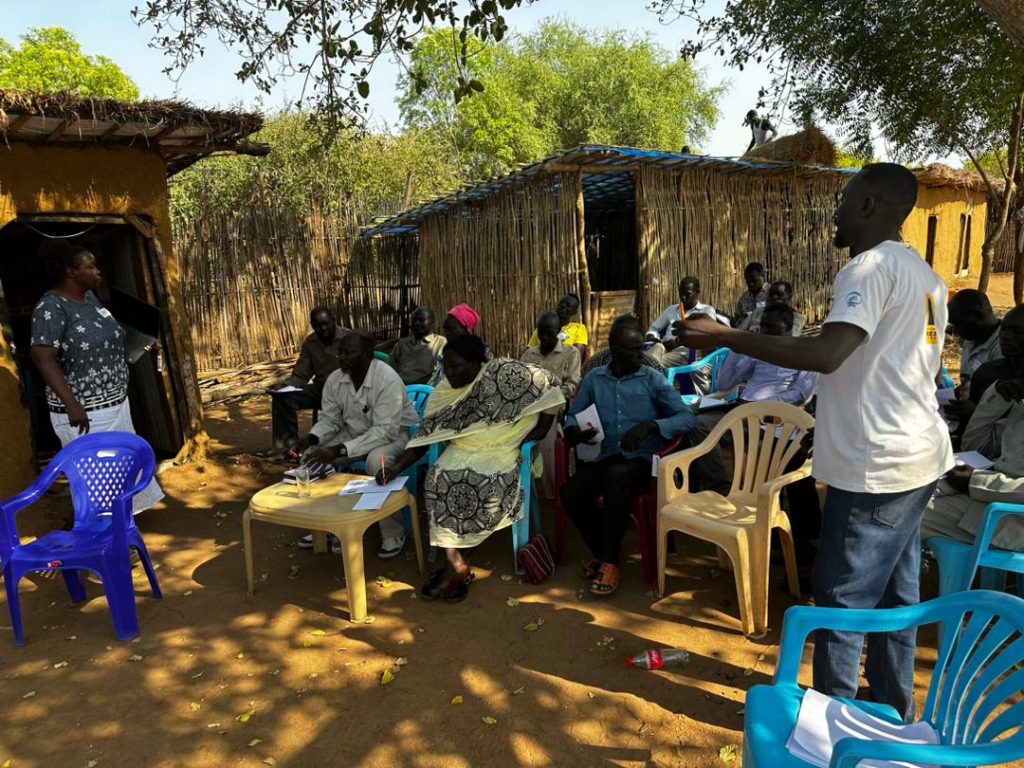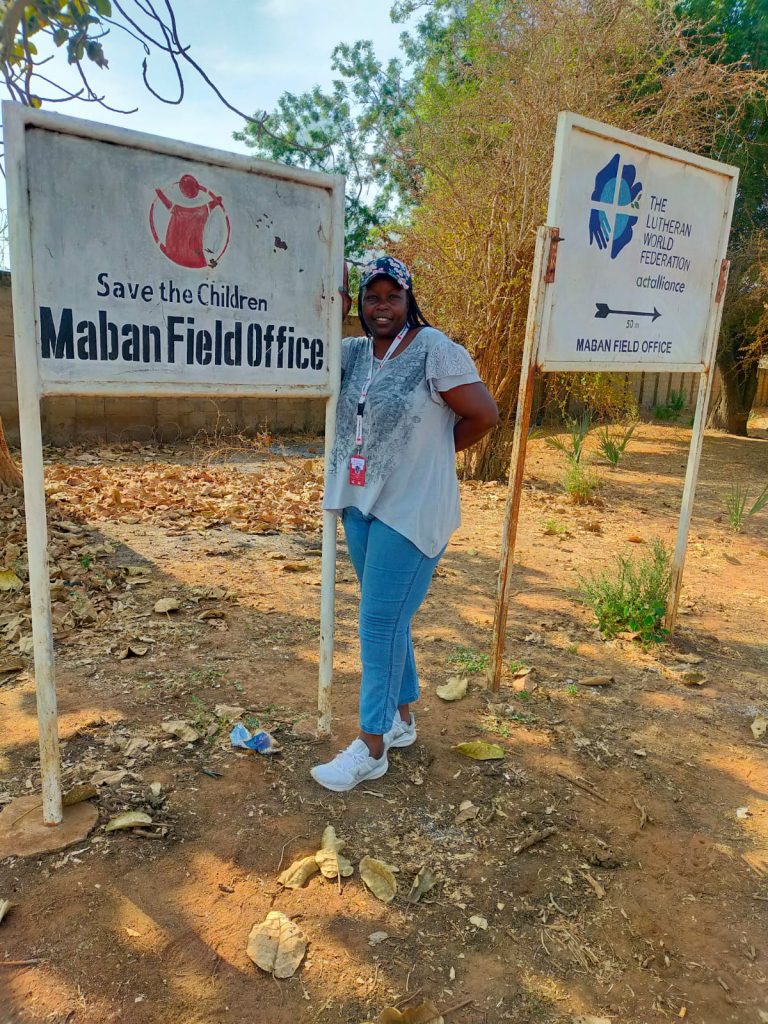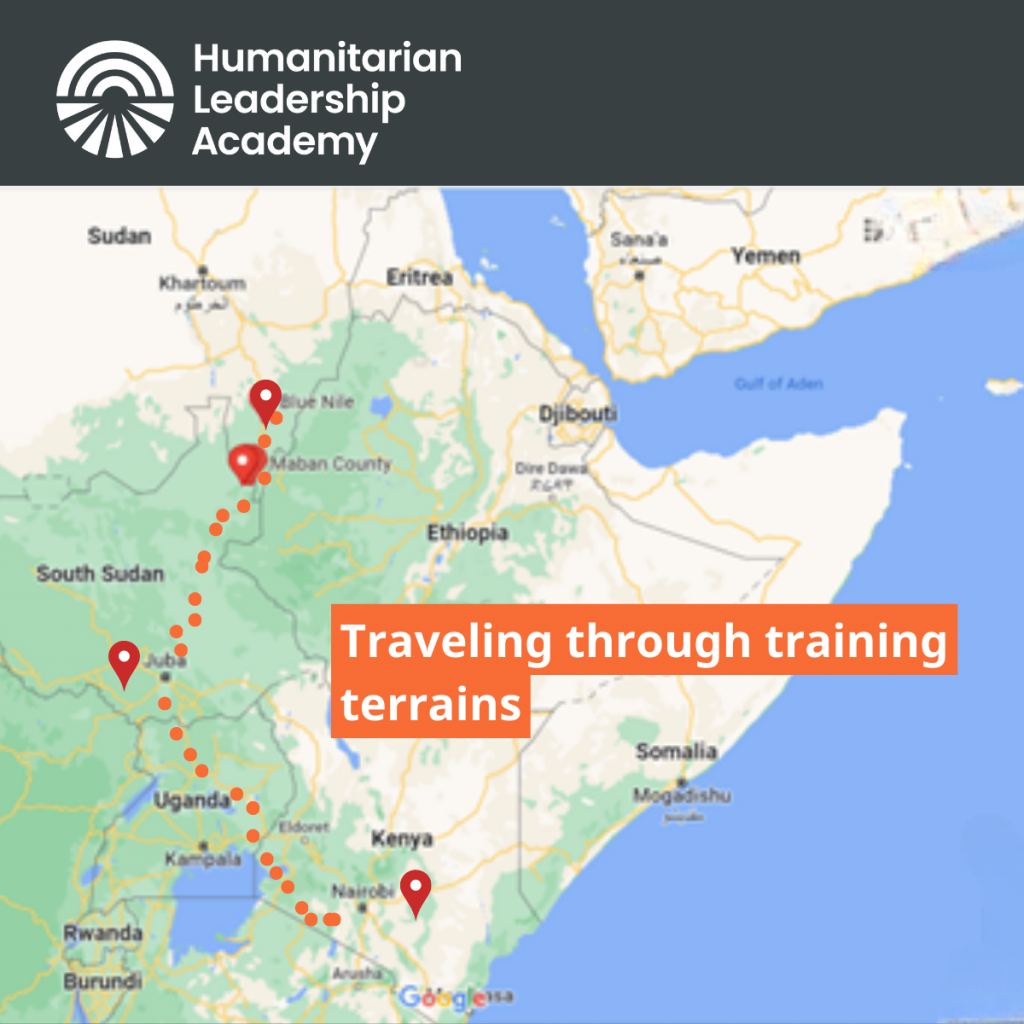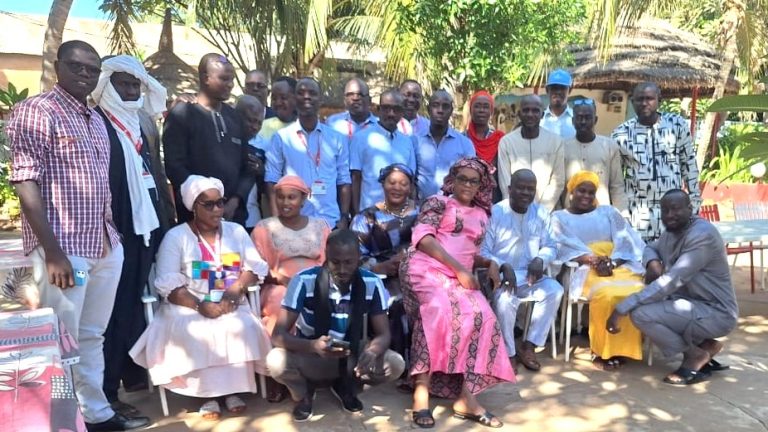
What does it take to deliver training where it is much needed?
When you think of training (not physical exercise for a marathon), what comes to mind? A laptop, notepad and pen, or a whiteboard and post it notes, meeting new people, one to two full days of learning new information, something boring and scary, travel to a scenic location or round tables and participatory groups?
Recently our team in the East and Southern Africa (ESA) region embarked on an adventure that would see 26 humanitarians upskilled in Core Humanitarian Standards, Basic Monitoring Evaluation Accountability and Learning (MEAL), Child Safeguarding and Humanitarian Principles with a focus on gender transformational thinking.

“Listening to community people empowers me. It gives a lot of perspective and makes one conscious of the things we do and why we do it.”
In 40-to-42-degree weather, Janet and her team travelled for a total of 12 days to arrive and depart from Blue Nile where this capacity strengthening exercise had been requested. The Sudan Relief and Rehabilitation Agency (SRRA) which regulates local NGOs in Sudan made a request for capacity building earlier in the year through Save the Children’s Eastern and Southern Africa regional office.
Janet Nyaoro, who leads the Humanitarian Leadership Academy (HLA) ESA team, led a team of three through Nairobi, Juba-Sudan, Maban – where the UN Humanitarian air service flew the team in a small airplane to Blue Nile. Through sorting visas and travel documents, sleeping in thatch and mud huts and make-shift thatch beds, the team felt a strong sense of fulfilment in the enthusiastic engagement from participants.
Reflecting on the journey, Janet said, “listening to community people empowers me. It gives a lot of perspective and makes one conscious of the things we do and why we do it.”
Participants were secretaries from every state department, government officials including the Deputy Governor, policemen and SRRA officials. The training participants received certificates but one of the key take-aways from the training was the resolve to set up a child protection desk in the Blue Nile police station.
Traveling through training terrains: Blue Nile
Participants received certificates but one of the key take-aways from the training was the resolve to set up a child protection desk in the Blue Nile police station.

In addition to over 500 resources on HLA’s free digital learning platform – Kaya, the HLA partners with local organisations in all five regions where we work to deliver tailored learning that meets the needs of humanitarians and the demands of the crises they face: through various formats ranging from simulations to mentoring, from online distance learning to face-to-face training, and from group work to one-to-one coaching.
Traveling through training terrains at the HLA, you may find the not-so glamourous yet highly rewarding side of delivering capacity strengthening support to persons who need it most, people at the borders of bringing change.


